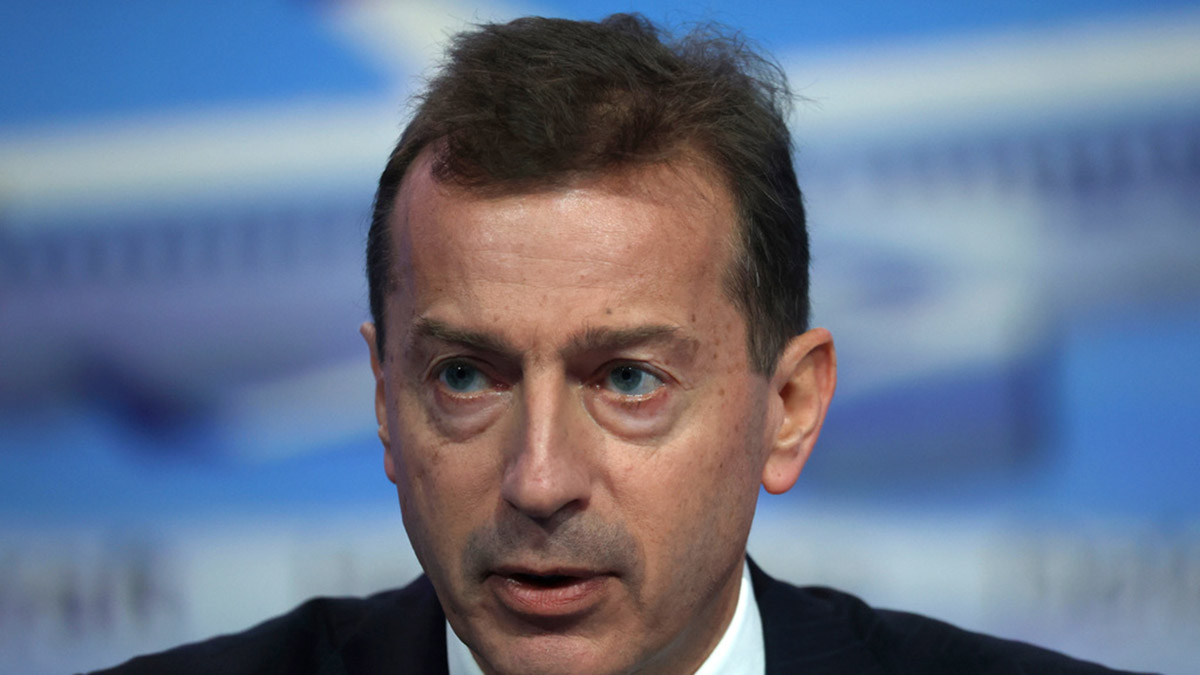In the realm of corporate leadership, expectations are typically centered around driving profits, fostering a positive corporate culture, and steering the company towards success. However, the recent remarks made by Guillaume Faury, the CEO of Airbus, have veered into unexpected territory—geopolitical commentary.
With Airbus standing as a titan in the aerospace industry, its CEO’s words hold significant weight. Faury, at the helm of a company worth nearly $124 billion and responsible for half of the world’s commercial planes, made headlines with his stark assessment of Europe’s readiness for potential geopolitical shifts, particularly concerning the Trump administration in the United States and the actions of Russian President Vladimir Putin.
Guillaume Faury warns of Trump presidency
Faury’s warning that Europe is ill-prepared for a potential second Trump presidency and escalating tensions with Russia has sparked a flurry of discussions. His concerns stem from Trump’s expressed scepticism towards NATO and the potential ramifications for European defence if the US were to withdraw its support.
Highlighting the urgency of the situation, Faury proposed a solution—increased defence spending. He advocated for European nations to lessen their reliance on external suppliers, particularly the United States, and to bolster their own defence capabilities. Such a move, he argues, would not only enhance Europe’s security but also stimulate economic growth within the continent.
Airbus eyes European defence market
The backdrop of Faury’s remarks unveils Airbus’s vested interest in increased defence spending. As Europe’s largest defence contractor, Airbus stands to gain substantially from any uptick in military expenditure. However, Faury’s statements raise pertinent questions about the sustainability of Europe’s dependence on foreign military hardware and the necessity for greater self-reliance.
Impact Shorts
More ShortsYet, the path to achieving Faury’s vision is fraught with challenges. Europe’s fragmented defense landscape, consisting of 27 EU member states along with non-EU countries like the UK, Switzerland and Norway complicates efforts to consolidate resources and coordinate defense initiatives.
One of Faury’s proposals involves consolidating European efforts to develop unified defence capabilities, such as a single European fighter jet. This ambitious undertaking aims to streamline resources and reduce redundancies across European defence programmes.
However, Faury’s suggestions face resistance from entrenched interests and geopolitical realities. The dominance of American defence contractors in Europe, exemplified by the widespread use of American-made aircraft like the F-35 and Boeing models, presents a formidable barrier to achieving self-sufficiency.
Moreover, Faury’s advocacy for increased defence spending prompts broader questions about the prioritisation of military expenditure over other pressing social and economic needs.
Nevertheless, Faury’s remarks serve as a catalyst for broader conversations about Europe’s defense posture and the need for strategic autonomy. His commentary resonates not only within Europe but also reverberates globally, prompting other nations, like India, to consider the merits of domestic defense production.
In conclusion, while Faury’s comments may seem unconventional for a corporate leader, they underscore the complex intersection of business and geopolitics in today’s interconnected world. Whether his vision for a more self-reliant Europe materialises remains to be seen, but his advocacy has undoubtedly ignited a crucial dialogue about the future of European defence.
Views expressed in the above piece are personal and solely that of the author. They do not necessarily reflect Firstpost’s views.


)

)
)
)
)
)
)
)
)



